Here is the C++ program i wrote to solve the above series:
#include <iostream>
#include <cmath>
#include <cstdlib>
using namespace std;
int factorial(int a)
{
if (a > 1)
return a * factorial(a - 1);
else
return 1;
}
float series(float x, int n, float b)
{
if (abs(pow(x, n) / factorial(n)) < pow(10, -6) || abs(pow(x, n) / factorial(n)) == pow(10, -6)) { return b; }
else return b = (pow(x, n) / factorial(n)) + series(x, n + 1, b);
}
int main()
{
float x;
cout << "Enter x: "<<endl;
cin >> x;
cout << "E^x = " << series(x,0,0);
system("pause");
return 0;
}
It works fine when abs(x) < 2 but when abs(x) >= 2 this error appears:
Unhandled exception at 0x00F02539 in 33b.exe: 0xC00000FD: Stack overflow (parameters: 0x00000001, 0x00F22FF8). occurred
I want to know why does this happen and how can i fix it?

